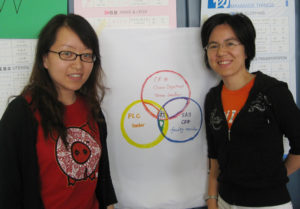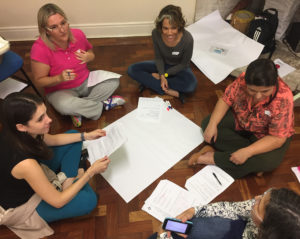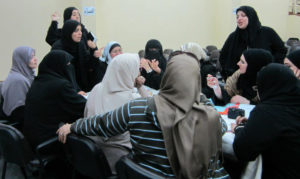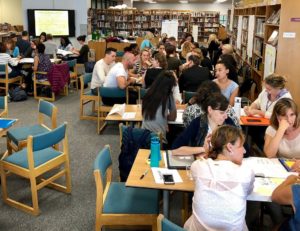What are Collaborative Practices?
The work we do is designed to provide the focus and structure needed to support the professional learning of educators within their school settings. A collaborative group might help members learn new strategies or implement new curriculum, or their learning might be focused on improving practice by receiving feedback on lesson plans, aligning curriculum, or developing common assessments. A group might look at student work for insights, it could be work specific to one student or to a group of students. At their best and most transformational, groups offer a forum in which members challenge deep-seated assumptions about teaching and learning, gain different perspectives about their students and surface and problem solve troubling issues in schools. Learning within an effective collaborative group can help participants question how they know what they know, be open to exposing fundamental assumptions, and surface ideas that they have uncritically accepted in the past.
An effective collaborative group builds the learning capacity of the group by engaging members in significant work in an environment that supports risk taking. To make it more likely that learning will build the group’s capacity for transformational learning, several key elements are essential.
- A skilled and experienced facilitator or coach supports the group. The coach, who frequently is a member of the group, [who] has participated in professional development to develop the skills, strategies, knowledge, and dispositions to facilitate the group’s learning.
- Groups use protocols to build their capacity for learning. The disciplined use of protocols or agreed upon processes and structures helps the group build its capacity for learning. Protocols help sustain a steadfast focus on teaching and learning. And, they offer the structure that allows a group to deprivatize their practice and explore the most difficult and challenging issues of insuring that students experience educational excellence.
During the professional development programs, participants will learn how educators, in collaboration with their colleagues, can improve student learning. Participants will prepare to adapt and translate their experience to group work they will do in their own settings. To this end, participants work to develop a professional community while learning the concepts, habits, tools, and skills that lead to more reflective practice.
By the end of a typical session clearly articulated goals will be achieved such as:
- Understand the significance of professional learning communities in improving student learning
- Know about and practice strategies for engaging in reflective discourse based on ideas contained in different kinds of “texts”
- Understand how to give and receive productive feedback on professional practice
- Understand and practice using several methods for increasing learning by examining student and adult work collaboratively—know when to use which method
- Have a clear sense of the role of a facilitator in creating and sustaining a professional learning community.




